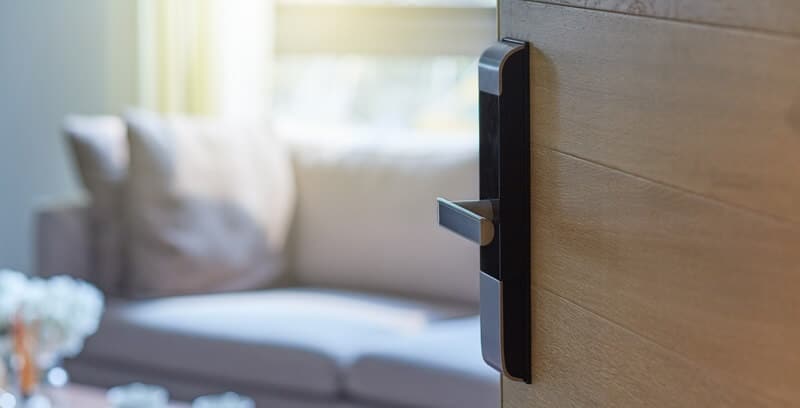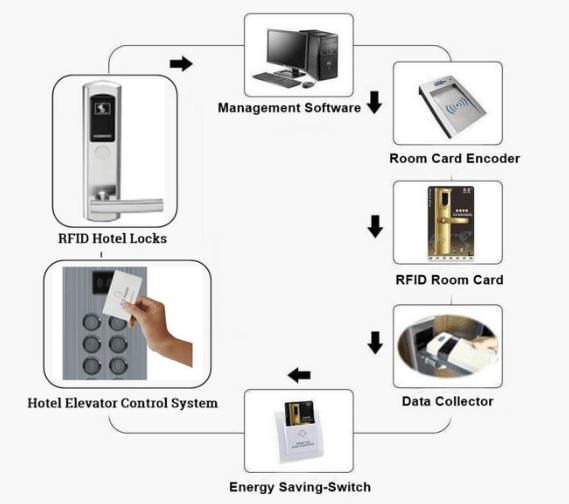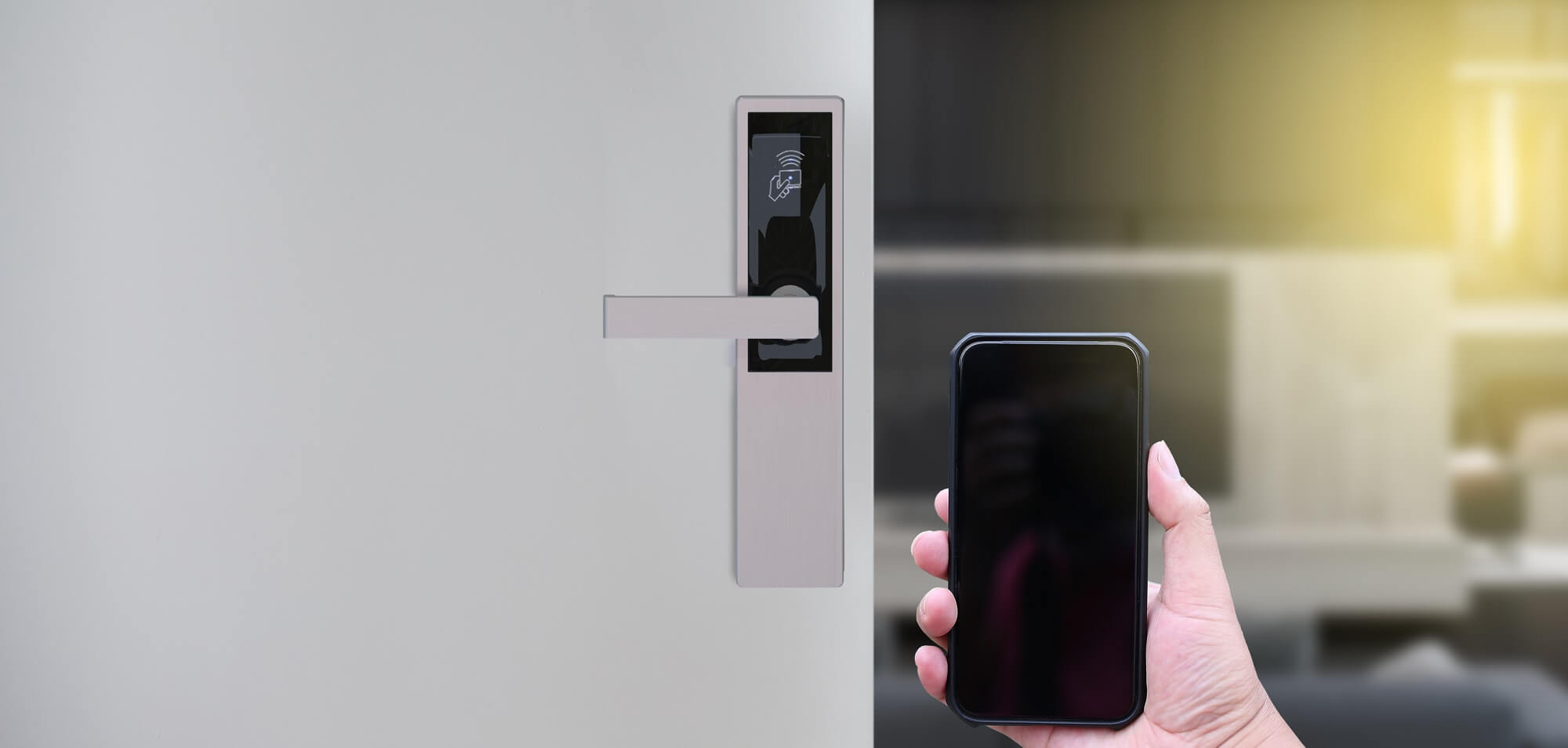What is a Hotel Door Lock System and How Does It Work?
Hotel door lock systems ensure guest safety and operational efficiency in the hospitality industry. This article will help you understand hotel door lock systems, including what exactly a hotel door lock system is and how it works.
What is the hotel door lock system?
A hotel door lock system consists of hotel door locks, key cards, key card encoders, hotel lock system software, and additional security tools or systems that control access to various areas within a property, including hotel rooms.
Traditionally, hotel door locks were simple mechanical systems with physical keys, which some hotels still employ. However, electronic locking systems have become more prevalent, using electronic keycards instead of physical keys.
The evolution of hotel door locks has been significant over the years. From the basic key and lock systems, hotels have moved to more secure and convenient options like RFID hotel door lock systems and Bluetooth hotel door lock systems. The need for higher security and better guest experience has driven this transition.
Hotel door lock system how it works
A hotel door lock system integrates various components to ensure secure access to hotel rooms. Here’s a breakdown of the key elements:
- Hotel Door Lock: The physical locking mechanism, usually an electronic lock, is installed on the door. It can be operated using a keycard, smartphone, or other electronic means.
- Hotel Key Card: A keycard is a plastic card with a magnetic stripe or RFID chip that contains the guest’s room access information. The keycard is inserted or tapped on the door lock to gain entry.
- Hotel Key Card Encoder: This device is used by hotel staff to program keycards with the necessary access information. It encodes the keycard with the room number, check-in/check-out dates, and other relevant data.
- Hotel Lock System Software: The software manages the entire door lock system. It controls access permissions, generates keycards, and maintains an audit trail of access events. The software is typically integrated with the hotel’s property management system (PMS).
Here’s how the system works in practice:
- When a guest checks in, the front desk staff uses the key card encoder to program a keycard with the guest’s room information.
- The guest uses the keycard to access their room by inserting or tapping it on the door lock.
- The door lock reads the keycard’s information and verifies it with the lock system software.
- If the keycard is valid, the door lock is electronically activated, allowing the guest to enter the room.
- The lock system software records the access event in its audit trail, providing a log of who entered the room and when.
This system provides a convenient and secure way for hotels to manage guest access to rooms, ensuring the safety and privacy of their guests.
- RFID Hotel Door Lock System: This system uses Radio Frequency Identification (RFID) technology to unlock doors. Guests are given RFID keycards to swipe or tap against the lock to gain access. These keycards are programmed with a unique code corresponding to the guest’s room.
- Magnetic Keycard Hotel Lock System: This system uses magnetic stripe keycards, similar to credit cards. Guests swipe the keycard through a reader on the door to unlock it. The magnetic stripe on the keycard contains the necessary information to access the room.
- Mobile Access Hotel Door Lock System: This system allows guests to use their smartphones as keys. Guests download the hotel’s mobile app, which communicates with the door lock via Bluetooth to unlock the door. This system offers convenience and eliminates the need for physical keycards.
Each type of hotel door lock system has advantages and disadvantages regarding security, convenience, and cost. Hoteliers often choose the system that best fits their property’s needs and budget.



